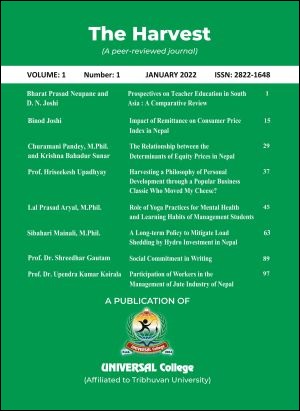Harvesting a Philosophy of Personal Development through a Popular Business Classic Who Moved My Cheese?
DOI:
https://doi.org/10.3126/harvest.v1i1.44336Keywords:
Management as tools, science and method, philosophy of management, parable of personal development, four characters and four perspectives in personal development, change and how to use it for personal growthAbstract
Philosophy of Management is a relatively new term compared to the tradition of Philosophy itself. If Management as a university discipline is barely a century old, Philosophy of Management has a history of only a few decades. As Management broadly concerns conducting the affairs of a corporation or a business enterprise effectively, writers on management hesitate to adorn the title Philosophy to the issues they deal in their discourse. Management Department in universities and colleges invariably project their fields as a science with tools, techniques and methods of their own. Increasingly University dons in Management and successful executives of top business corporations began sounding about Philosophy of Management. A century after the first MBAs graduated from the US universities, Philosophy of Management has emerged as an academic discipline of its own. Personal Development of corporate executives, frontline business personnel and lowly staff members of business houses has been an important sub-field of Philosophy of Management. Dr. Spencer Johnson’s Who Moved My Cheese? (1998) has been a popular business classic that is a unique source of constructing a philosophy of personal development. This paper explores the concept of change as a critical element in the life of individuals and business organizations for successfully navigating the constantly changing world which can expand the basis of Philosophy of Management. Ability to perceive change that occurs in a small degree, to anticipate changes in the world of things, to prepare oneself for the changes that arrive and not to fear to confront changes and to understand that changes can bring better options are some of the philosophical lessons in the parable of Johnson’s book.




